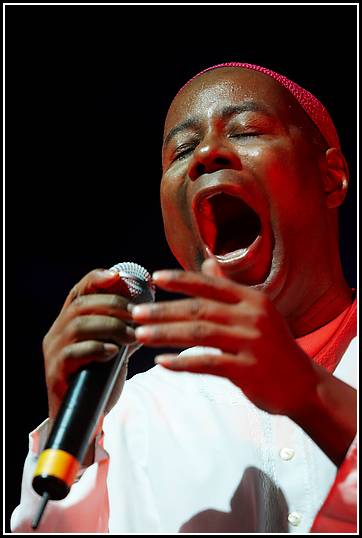
Please God, offer honey to musicians
who bring us such joy!
Give them strong and untiring hands
to keep playing their music.
Give them vision so, like birds in love,
they can bring Your message to our ears.
Let them drink plenty from Your river and
grace them with Your strength
so their music becomes the pillar of Your glory.
Rumi
On November 2 at the first "Come Sunday: Jazz on the Sacred Side" concert, as both an invocation and to express my gratitude for Dwight Trible and his magnificent band, I read this piece by the Sufi mystic poet Rumi, from a collection I have of his called "Rumi: Hidden Music: Paintings and Poems translated by Maryam Mafi and Azima Melita Kolin (ISBN 000712032 X) Below you can read the program notes from a conversation I had with Dwight the week before. And in the "We're a Winner" post below you can hear more about the success of the series launch. Enjoy!
About our very special Sacred Side debut artist: Mr. Dwight Trible
Dwight Trible grew up in the Laurel Homes Projects in downtown Cincinnati during the time when Greater Bethlehem Temple, today one of the largest Apostolic churches in the city, got its start in his building’s basement. His mother, who played lots of Mahalia Jackson, would get all seven of her children up Sunday morning and get them down to Sunday school just so she could get a break. There was music everywhere in his home--Mama’s Mahalia in one room while his guitarist brother had Kenny Burrell LPs on repeat in the next--and in his neighborhood, from gospel, blues and jazz to the soulful sounds of early singing influences like Aretha Franklin and Linda Jones. “Most of my influence singing-wise for the majority of my life has been female.” Dwight tried to sing in both gospel bands and various R&B oriented groups, “cause I wanted to be popular too...but after a while I got sick of it. I started wanting to do something else. By that time I had started buying jazz records.” He bought Miles, “cause everybody says that’s what you’re supposed to listen to,” then he got really into Carmen McRae...then one day he saw a two record set in the cut out bin for 50 cents. He says he saw this lady singing, had no idea who she was “at all! But she looks like she’s really singing...I took the record home, played it...she was doing something I had never heard anybody doing.” The singer was Betty Carter and Dwight sights that moment as being one of the most significant in his adult life in terms of shaping what he wanted to do musically. “She was doing something different...as creative as she was, she was also technically peerless...on her game all the time.”
These qualities of technical brilliance, creativity, and rigorous consistency were the elements that would most inspire Dwight about the wise and generous men who were to claim the young singer from Cincinnati once he moved way out west. With love, awe and humility Dwight lifts up Horace Tapscott, Billy Higgins, Harold Land and Oscar Brown Jr. : “It didn’t matter where they were playing, the World Stage, some other hole in the wall or some magnificent place...they did it with all they had, all the time. No matter how old they were, they still gave it all. They didn’t think about, ‘Oh I better watch myself, I might have a stroke up here, I might die.’ No, it wasn’t like that. And that takes a certain amount of faith and courage to do that, and when you see them doing that, you know that’s what it’s all about...And that they somehow saw the potential in me for that, it gives me chills now just to think about that.” He poignantly shared, “Like I said, even though I never made any money to speak of, as of yet, hopefully (smiles)...somehow throughout my tenure, the thing that keeps me from getting discouraged is meeting these great spirits...we had a lot of time together...somehow I’ve been blessed that way and that’s more than money, that’s more than money.” The gifts from these men ranged from original songs to sage advice. Dwight hums the melody of Debussy’s “Clair de Lune” and tells me Oscar Brown Jr., before he died was working on a lyric for that and told Dwight, “You know, I can’t sing this but I think you can.” When we talk about the importance of making original, authentic spiritual and political statements because musicians who don’t are quickly forgotten he says, “Billy brought that up to me...’they will forget you’.” Then Dwight reflects that jazz has to be one of the most spiritual forms of music there is, “but most jazz musicians don’t openly give it recognition...most of the standards are about male and female relationships, stuff like that. Of course that’s what made Duke Ellington stand out so much because he chose to actually do sacred concerts. And John Coltrane...when they actually said, ‘I’m gonna put it out there, this is what I believe’...and I think that’s why that sticks out so much. Of course after John, Pharaoh kinda came in and took it up, Leon Thomas and those people...Still today you don’t have a lot of musicians that are openly spiritual or openly political. So I find that to be something strange. I figure, what you got to lose? I feel like, what the heck, I’m too old to be doing anything outside of what I really wanna do....Personally I do the best I can everyday...and I think it’s a great privilege that people will actually leave their homes to come and see me sing. If people are willing to do that, then you owe them the best you have.”

No comments:
Post a Comment